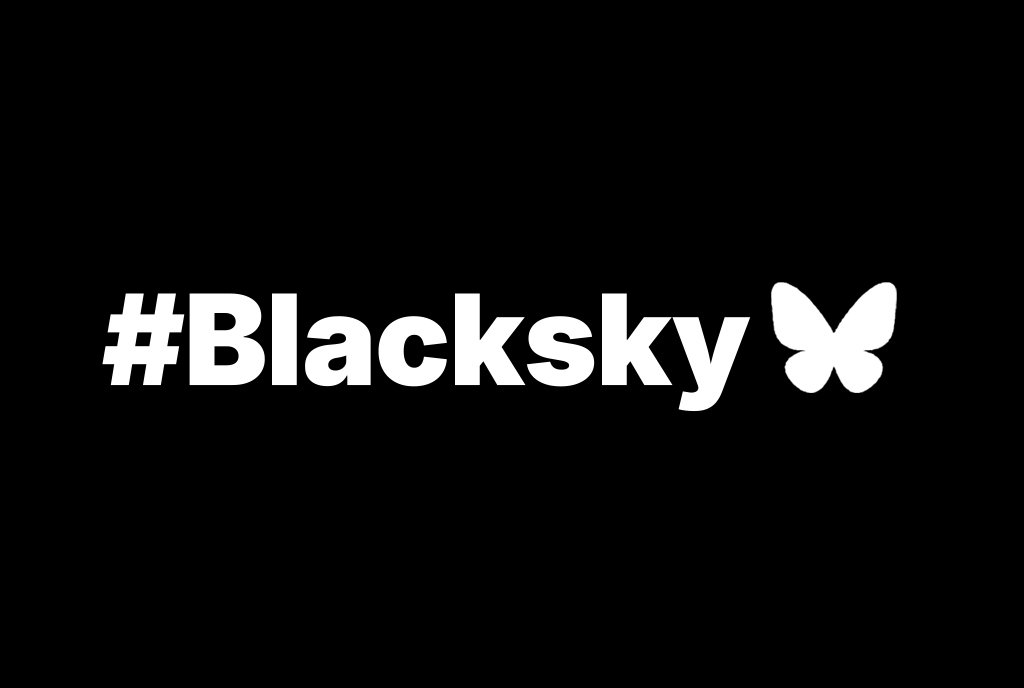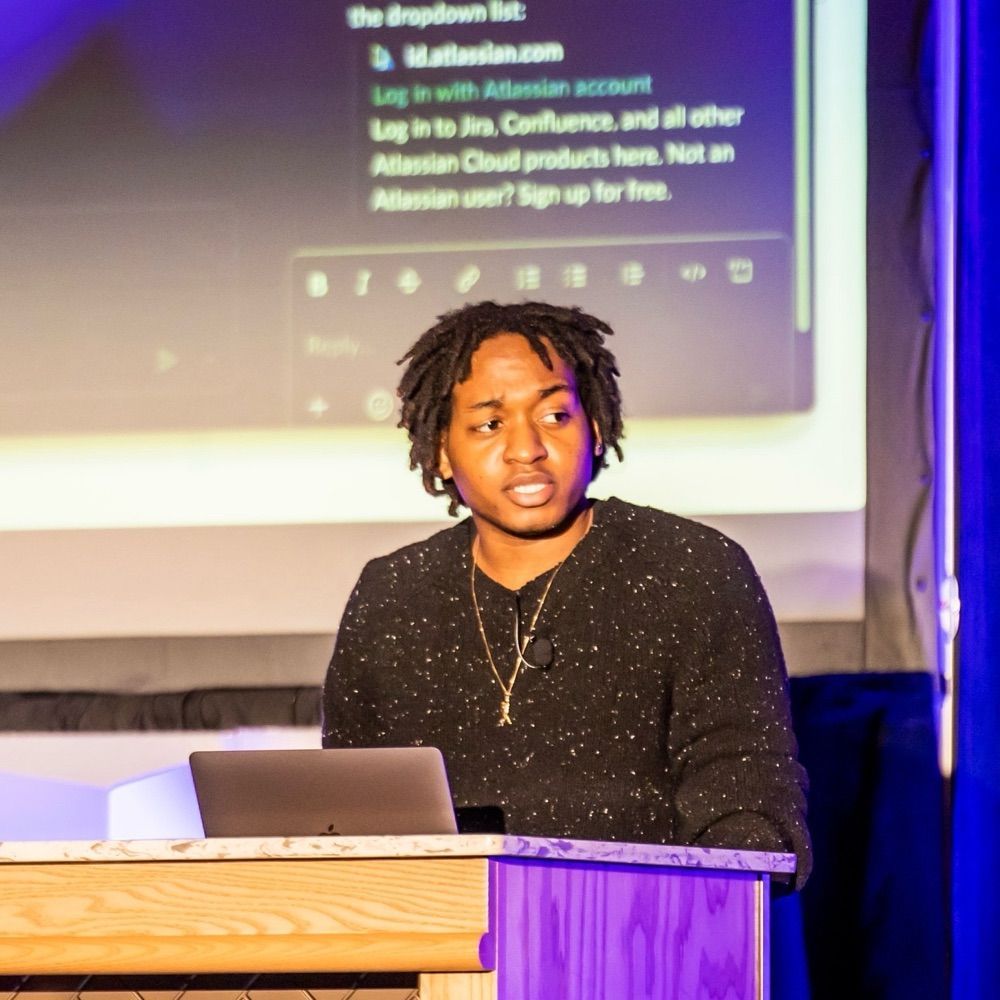
In the weeks following the 2024 US presidential election, the company and social media platform Bluesky has seen its numbers rocket, thanks largely to users of X (formerly Twitter) fleeing the site owned by mogul-turned-presidential-advisor Elon Musk.
Meanwhile, within that shift lies a story, still very much unfolding, of a new attempt to build a Black community online: It goes by Blacksky.
The struggle of BIPOC people, and perhaps Black people in particular, to build robust, authentic, and safe community online is long and ongoing. X has defiantly—even proudly—lowered its standards and enforcement against what many, including scholars, call hate speech.
“The internet has kind of been anti-Black from the very beginning.”
Bluesky, on which Blacksky is organized under the hashtag #Blacksky, has not been immune from criticism either: Last year the platform came under fire for allowing racist usernames and equivocating over its policies around potential racist slurs; more recently, the platform once again caused controversy by allowing posts by a journalist widely viewed as openly transphobic.
But amid the uncertainty around Bluesky’s approaches to moderation, the Blacksky community has taken such matters into its own hands.
Both a simple hashtag and a concerted community project, Blacksky now involves dozens of people, mostly working for free, contributing hours of their time to the project. But the original vision and architecture traces back to Rudy Fraser.
Fraser is a young technologist and organizer whose ambitious side project has become building Blacksky into something much more ambitious than an ephemeral hashtag. He wants to create a thriving, safe Black online community.

According to Fraser in an interview with NPQ, the need for such an online space for Black people is longstanding.
“The internet has kind of been anti-Black from the very beginning,” says Fraser. “Immediately, when you’re not in a predominantly Black space, you are open to microaggressions, direct harassment….You may be engaging with certain content that is…referencing your…Black culture, but it’s not from Black people. And so it feels extractive, it feels alienating.”
Fraser’s own vision for Blacksky is an authentic, vibrant, and safe community for Black people everywhere—and one eventually strong enough to survive on its own.
As Fraser put it himself in a blog post last year: “My purpose with Blacksky is not to be the next Black social network; it’s to be the last one.”
Black people have managed to build community on social media despite the hate speech.
A Created Space
A self-taught computer programmer from the Jamaica neighborhood in Queens, NY, Fraser spent about 10 years in IT before embarking on a “startup journey” that led him toward community organizing.
“Any time I tried anything, I came back to community work of some kind,” Fraser says.
He began organizing with a local mutual aid group in his neighborhood called We the People NYC—and is now one of its lead organizers. He founded a project called Papertree, which helps communities pool funds. And shortly after Bluesky’s launch in 2021, he began working on Blacksky.
His work builds on other models where Black people have managed to build community on social media despite the hate speech, trolling, and aggression—both micro and macro—that plagues Black people online.
Black Twitter, on the platform now called X, is—or at least was—one such space, Fraser points out.
“At a certain point in time, I think I’ve seen figures cited where it’s like between 20 to 25 percent of Twitter’s user base was Black. It was an exceptionally Black app,” notes Fraser.
Sign up for our free newsletters
Subscribe to NPQ's newsletters to have our top stories delivered directly to your inbox.
By signing up, you agree to our privacy policy and terms of use, and to receive messages from NPQ and our partners.
“The difference is, Blacksky was created”
But maintaining that presence took a good deal of effort in the face of X’s now-notorious lack of moderation.
“On Black Twitter, the community itself built up lots of cultural practices of how they engage with each other and keep each other safe,” says Fraser.
Although Blacksky may look to the average user no different than Black Twitter—a community revolving around the simple use of a hashtag—on the back end, there’s much more going on, as Fraser explains.
“The difference is, Blacksky was created space—like, I created the code that cultivated that community,” he says.
Now, he and a growing number of fellow Blacksky developers and moderators are working to improve users’ experience and sense of community and to accommodate the near-exponential flood of traffic to Blacksky in recent weeks.
The Difference in Design
Bluesky, the platform owned and overseen by the (for-profit) internet startup of the same name, in many ways closely resembles X (and Twitter, previously), Threads, and other competitors. But in other ways, it is quite different.
Bluesky—like some other alternative social media platforms, notably Mastodon—is built on an open-source platform, meaning the basic software running it is free to use, and it is based on a “decentralized” framework.
Unlike traditional social media platforms, where every feature, feed, and algorithm is decided behind closed corporate doors, Bluesky operates more like a collection of building blocks that anyone can pick up and use as they see fit. Rather than depend on a single, top-down algorithm, Bluesky is designed to let users customize their social media experience by choosing or creating their own custom feeds built around their interests.
The “openness” extends to moderation and control. Communities like Blacksky can establish their own rules, block harmful actors, and even build systems that proactively prevent abuse.
“The data is wide open,” Fraser says, meaning developers can build tools to keep their users safe without waiting for Bluesky—the larger entity—to act.
Fraser and his colleagues have built integrated systems to filter hate speech, protect users from harassment, and provide nuanced controls that let a growing community of moderators regulate who does and does not get to participate in the community as it grows.
The explosive growth of Blacksky in recent months has provided both challenge and opportunity.
Growing Blacksky
Fraser’s vision isn’t to curate Blacksky; it’s to protect it as a space where its users can build an online community and culture themselves without being besieged by hate speech and bad actors, and without the whims and pitfalls of corporate ownership.
Part of the vision, too, for Blacksky is to become resilient enough to eventually live on its own servers—literally and otherwise.
The explosive growth of Blacksky in recent months (the community now numbers in the hundreds of thousands) has provided both challenge and opportunity, says Fraser. With a flood of new users comes a consistent trickle of bad actors, antagonists, and racists.
To keep them out—or, really, to allow users to choose not to see their posts—Fraser and his colleagues are constantly updating an ever-growing “green list,” a master list that Blacksky users can use to block known malevolent accounts.
That takes a lot of work, and Fraser’s broader efforts are only possible thanks to the growing team of (for now) volunteer moderators. Even so, the recent influx has been a challenge—had his team not been ready to meet the moment, “[Blacksky] would have broken down with this last recent growth,” acknowledges Fraser.
But he welcomes the expansion. Because of the open-source platform Bluesky is built on, it can, in theory, be essentially replicated by anyone, at any time, should, say, some mogul buy it overnight. If Blacksky gets strong enough, it can determine its own future.
“Black Twitter was like this massive cultural hub, but it was built on a platform that didn’t prioritize safety or the unique needs of Black users. It allowed harassment to proliferate,” says Fraser. “That’s where I wanted Blacksky to go further.”
Editors’ note: We have updated this article with a correction to the name of the organization We the People NYC, and Fraser’s role as one of its lead organizers, not its sole lead organizer.












